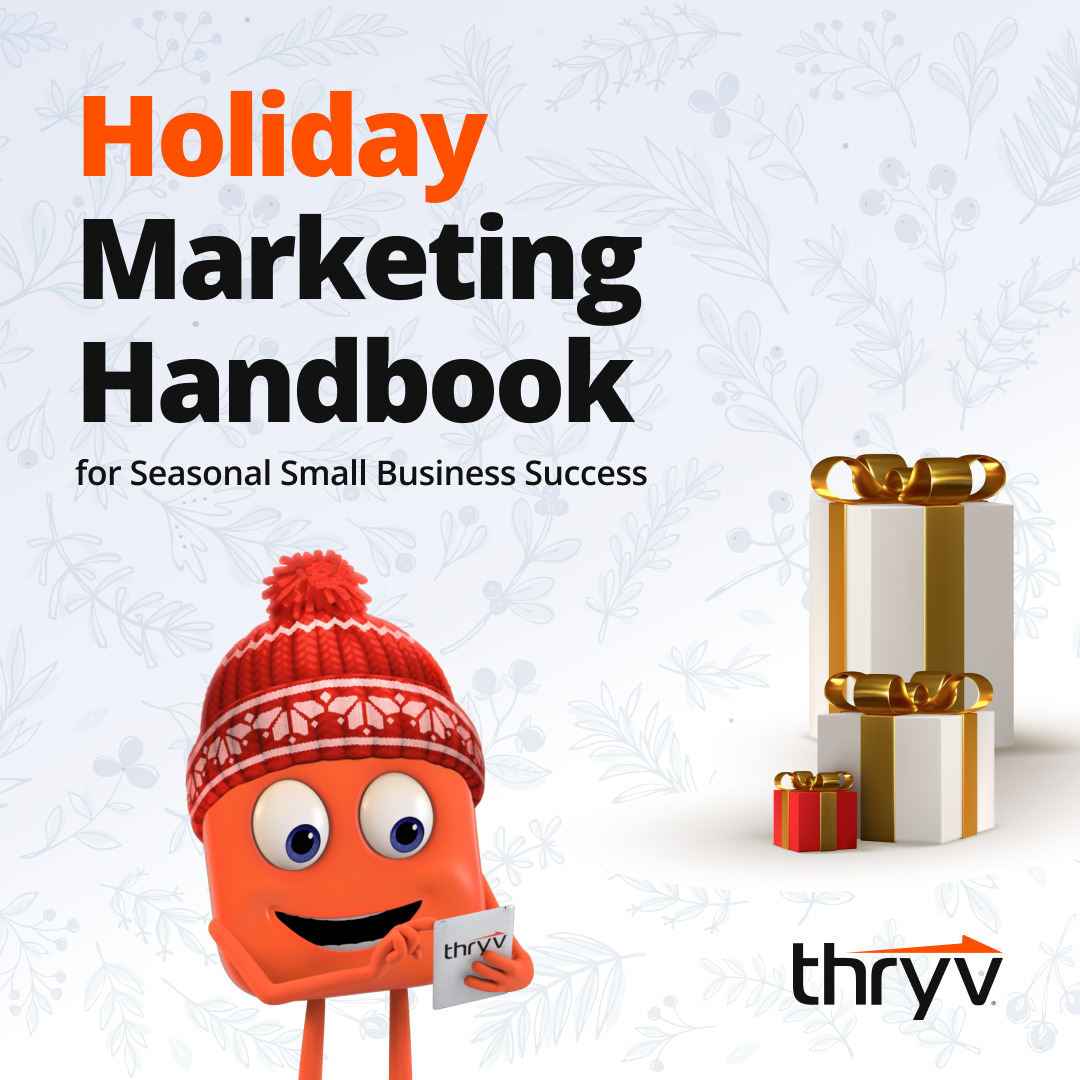Black Friday, Small Business Saturday and Cyber Monday are already in the rearview this holiday season. Have you tapped into your year-end promotions?
These holiday marketing statistics show you exactly why small businesses need to get into the action.
Did you know consumer-facing businesses earn 50% of their revenue during the fourth quarter? Use these holiday marketing statistics to plan your strategy for gaining new customers before Santa comes down the chimney.

Free Guide: Holiday Marketing Handbook
DownloadHoliday Marketing Financial Statistics
November and December 2022 are expected to top 2021 numbers by 6% to 8% to the tune of $960 billion in those two months, according to the National Retail Federation.
And while that’s only about half of the growth we saw in 2020 vs. 2021, it’s the highest total of all time.
- Thanksgiving weekend 2022 racked up a 10.9% increase over 2021 (with the exception of auto) (Mastercard)
- Both in-store and ecommerce saw double-digit growth, 10.5% and 12.5%, respectively (Mastercard)
- The sectors that saw the biggest growth for 2022 Black Friday weekend included apparel (+14.4%) and electronics (+2.0%) (Mastercard)
- Restaurants saw a 23.3% jump year-over-year, likely due to the post-pandemic demand for in-personal experiences (Mastercard)
- According to Adweek, nearly half of shoppers surveyed started shopping before — and often in place of — in-store doorbusters on Black Friday. This continued through the end of the year, especially online, driving a dramatic 47% increase in ecommerce sales. (AdWeek)
- Consumer-facing businesses often earn 50% of their annual revenue in Q4. (Small Business Trends)
Building Brand Awareness
Standing out is difficult during the festive season with the saturation of Santa Claus, Frosty and the rest of the holly jolly gang.
Use this time to solidify brand awareness and give customers a glimpse of who you are and why it’s important to shop locally with you.
Connect with customers via social media, email campaigns and any way you can to keep your small business top of mind.
- Good news from Meta: Facebook and Instagram ad costs were down 29% during Thanksgiving weekend 2022 vs. 2021, however the cost to advertise on TikTok grew 13% (although it’s still cheaper than Facebook. (Adweek)
- 49% say they are more likely to shop from retailers who send personalized content or offers during the season. (Redpoint Global)
- How a brand reacts during a crisis has been shown to affect customer loyalty. 6 in 10 (57%) would be inspired to shop with a retailer that supported its staff and customers during the pandemic. (Accenture)
- 75% of consumers surveyed agree that shopping in-person at a small business brings them joy and drives excitement for the holidays. (Amex Trendex)
- More than half of in-person shoppers surveyed (60%) prefer to shop at local neighborhood stores and a majority (71%) of consumers agree it’s important to support local stores and restaurants. (Vericast)
Multi-Platform Marketing Effort
There’s no shortage of ways to connect with customers as we round out the final months of the year. Your small business holiday marketing strategy should be a multi-platform attack using various social media outlets, emails, blogs and more.
And don’t sleep on the opportunity to spread your digital word-of-mouth through advocates of your small business.
- 49% of tablet and 46% of smartphone social media users like companies that post at least once per week. (Forrester)
- Nearly 8 in 10 consumers said they used at least one Facebook app or service for discovery last holiday season. (AdWeek)
Dazzling Digital Experience
The last two months of the year move faster than Santa’s sleigh across the night sky, and consumers frequently turn to digital means when accomplishing their holiday shopping.
Keep up with the hustle and bustle by ensuring your website is fast and accurate, your online scheduling tool is set up for unconventional hours and your digital shopping cart can handle higher demand.
- Shopping via social media is also on the rise, especially among younger consumers. 6 in 10 (61%) businesses expect to see higher engagement and purchases through social media during the holidays. (Bazaarvoice)
- With third-party cookies phasing out, 51% of marketers are increasing the value of discounts and other services offered to consumers in exchange for their data. (Sitecore)

Holiday Marketing
Handbook
Maximize your business's marketing strategy for a successful holiday season: from pre-season preparation to during and after the festivities.




